Special Features
A Unique International Preschool with High Quality Childcare and Education
Education
The Self-expression, Critical Thinking Skill and
Spirit of Inquiry Essential for Real Global Kids
We are the first international preschool in Japan to introduce the Pygmalion Early Childhood Education Method, a special program that develops children's critical thinking skills, enhancing their ability to think independently. In addition, we nurture a spirit of inquiry through authentic experiences and a unique lesson program to develop minds that want to know and learn more on their own.
Our program is designed to develop self-motivation, independence, imagination, creativity and critical thinking skills, which can be difficult to cultivate in the Japanese education system, as well as cultivating understanding and tolerance of diverse values (diversity). At the same time, we provide the moral education and the sense of cooperation and social skills that are developed so well through Japanese-style education, all of this creating our Global Education program.
Through bilingual education, multicultural studies and active learning, we bring out the individual abilities and personalities of the children to expand their future possibilities, nurture true global citizens and provide support for a happy, prosperous and diverse future.

Bilingual Education
A Bright Future Through Language
Bilingual education from an early age is vital in order to raise true bilinguals who think in Japanese when speaking Japanese, and in English when speaking English.
CGK is an international preschool that combines nursery school and kindergarten, with bilingual Japanese teachers who have a thorough knowledge of child development and English teachers who are familiar with the best English teaching methods, to provide a bilingual education curriculum that is tailored to the growth of each child.
Rather than simply having fun in English, we provide high quality bilingual education by implementing programs and curriculum in yearly, monthly, weekly and daily goals, to keep a fixed eye on our purpose.

Effectiveness of Early Childhood English Education
-
As shown in this video, there is a critical period in language acquisition, and the ability to acquire a second language decreases with age.
Adults are already culture-bound listeners and their ability to distinguish foreign language sounds is inferior to that of even a six month old baby.
English uses a frequency range not used in Japanese, making it difficult for Japanese people to differentiate between sounds, additionally, certain consonant sounds are nearly impossible for them to recognize.
Another example would be the difficulty in distinguishing between R and L, as well as the difficulty in pronouncing these letters clearly as an adult. Early English education is the best, most painless way to solve these problems.Starting language learning early also has side benefits of improving IQ, problem-solving skills and acquiring situational adaptability.
English Immersion Education
Children learn best through imitating the English spoken by people around them, not through learning theory or logic.
Using the same process as native English speakers from an early age is the best way to train English 'ears' and 'brains'.
So, for these children, it's important to implement 'immersion education' that provides them with an English-speaking environment, so at CGK, all staff interact with the children in English, except during Japanese classes.
At the same time, while being mindful of their goals and objectives, teachers work hard every day to conduct classes flexibly to meet the interests of the children. It's true that children may naturally pick up English skills by being in an English environment, but they'll achieve higher proficiency if they have educators who can provide appropriate support.
Some children are new to English so we try to create a fun and natural environment, so they won’t be overly stressed.

-
CGK's Concept of Fixed, 5-day-a-week Service

For children, their degree of English language acquisition depends greatly on how much, how often and for how long they are immersed in English.
CGK doesn't offer courses of 2 - 3 day-a-week, rather, only 5 day-a-week (only 2 year olds can choose from 2-5 days per week), partly to avoid large gaps in the students' English comprehension and communication skills. The main reason however, is to provide the necessary amount of exposure to English for early childhood bilingual education, and for the smooth implementation of a curriculum that encourages various forms of learning and awareness that go beyond language alone.
-
Differences from Learning at Short Lessons after School


At CGK, students learn English through real life, both in and out of school, unlike the limited time and activities of after-school lessons. We not only 'learn in' English, but also 'live in' English.
Flexible delivery of English education based on the educational curriculum, and English language support in real-life situations allows for a wide range of areas to learn English. The curriculum is flexible and can change according to the children's interests, so that the students can learn English through immersion, allowing them to learn naturally while having fun.
Japanese Education
Studies show that if a child starts learning a language from early childhood but the mother tongue is neglected too much, both their first language and the second will end up incomplete and the child will lack the skills necessary to think logically in the future.
This is known as being "double-limited (semi-lingual)".
However, at CGK, we put much effort into education in Japanese and we are the first international preschool in Japan to adopt the Pygmalion Early Childhood Education Method, focusing on intellectual education.
We introduce the Japanese culture and events that are found at other nursery schools and kindergartens, including concepts of group-life rules, how to interact with those around you and consideration for others. We help students not only learn how to count, name numbers and shapes, but also how to understand concepts and application, in this way we are able to check up on areas more difficult to follow up with at home. Japanese education is provided according to the children's development by experienced childcare professionals, who have extensive experience in children's development, and intellectual education teachers.
Close collaboration between the English teachers and the Japanese bilingual teachers means the English and Japanese curriculum is closely linked, creating a more effective program.


The Significance of Language Learning
Learning a language includes not only the language itself, but also learning a background of diverse cultures and customs through that language. The world opens up when you learn a new language and language education is the first important step to entering this new world.
Some may bring up reasons why it's not necessary to learn a foreign language. But we can get a more realistic opinion of the significance of language learning from those who have learnt a foreign language and have lived abroad. Learning a foreign language can open doors to endless experiences. CGK believes that language learning is an extremely important and essential skill for a number of experiences beneficial to children's development.
Multicultural Studies
Learning Diverse Values and Tolerance
Many of the world's problems, such as terrorism and conflict, as well as prejudice and discrimination, are often caused by a lack of understanding.
By getting to know what is different from us, we can adopt an attitude of tolerance and acceptance without excluding or shying away from anything, which is an example of 'tolerance for diversity'. Learning about the world through multicultural studies leads to a broader perspective and a more compassionate heart.
Students will be exposed to a variety of cultures through multicultural studies, gaining an international perspective, while also learning about Japanese culture. Learning about the country you are living in, while keeping your own identity is the first step towards becoming a true global citizen.


Have Fun Learning World Culture



Holidays and events in other countries, such as Halloween, Thanksgiving Day and Chinese New Year, are closely connected to the culture and history of the country in which they are celebrated.
In order to nurture interest, an intellectual spirit of inquiry and tolerance for diversity, CGK introduces students to a diverse range of cultures, considering them from a variety of perspectives. We try to help the children learn naturally, while having fun. Sometimes this will take the form of an overseas experience with child-centered activities.



Understand Japan with the Japanese Culture Learning Program
Global Kids who are to succeed in this world should not just be focused on the world, but also learn about the roots of their own country and cherish their own identity.
This means that in order to be successful out in the diverse world, it is not only necessary to be adaptable to that world, but also to be a unique and attractive person due to their own upbringing and life experiences.
At CGK, we value the Japanese sense of cooperation, etiquette, manners and posture, as well as other things children learn and experience at regular Japanese nursery schools and kindergartens.


Active Learning
Breaking Away from Japanese Passive Learning
Japanese school education is based on a routine of writing on the blackboard, questions, then answers, which doesn’t encourage the children to think deeply when answering questions.
In these one-way lessons, time passes without discovery or stimulation, and all that is achieved is the accumulation of knowledge necessary for exams.
If this typical Japanese system was used in the West for example, there would be less board writing and more interactive dialogue between the teacher and the students. Occasionally debates would be held, with each participant presenting their own ideas and opinions.
It's very difficult for Japanese-style education to nurture the self-motivation, independence and creativity that will be necessary once the students enter society.
By allowing for a variety of thoughts and comments along the way, rather than being overly attached to 'one right answer', students acquire the ability to create their own future.


A Fun and Intellectually Stimulating Experience - Active Participation Program



Participatory learning, where they actually see, touch and participate, is many times more enjoyable and stimulating than passive learning, where they just see and hear.
Whether through multicultural studies, event experiences or “job training” where they can experience various occupations, CGK strives to achieve great results while having fun in a way that best fits the child's development.
Our active participation program provides the groundwork for anyone to become a future leader and by incorporating public speaking we provide the needed practice for holding and communicating their own opinion.



Hands-on Learning Through Job Training
At CGK, students learn about different jobs through an activity called "job training", each session having its own theme.
This is one of CGK's unique activities, which starts with an introduction to stimulate interest, inquiry activities to encourage deep thought, out-of-school activities and events, role-play activities that include real-life scenes and situations.
It's an opportunity for them to learn new vocabulary and expressions not learned in their regular lessons and it's also an opportunity for a hands-on learning experience that will stimulate their interest in learning practical English. They have a lot of fun, which makes them more active and engaged in the activities.


Childcare
Global Education and Childcare That Supports a Healthy Mind and Body
Childcare and Kindergarten Education in Japan
CGK's concept of global education and global childcare is not just about doing things the way they're done overseas, but about incorporating the best aspects of both overseas and Japanese education and childcare.
As a result, we emphasize cooperation and compassion, necessary skills in a group environment, to nurture the proper conduct and personal character that will serve as a foundation for building relationships in the future.
We include skills learned in Japanese nursery schools and kindergartens, such as cooperation, consideration, discipline, manners, etiquette, learning nursery rhymes, arts and crafts, musical instruments, holding seasonal events, etc. We also prepare the students for international school and public or private Japanese elementary school.


Curriculum for Both Childcare and Education
Our English environment is maintained by licensed bilingual Japanese teachers and English teachers, who maintain regular communication with one another, with the English teachers also actively involved in childcare programs.
Childcare duties are not necessarily divided up by giving childcare to Japanese staff and English lessons to foreign staff, instead all staff share the same childcare goals and are aware of each student's personality and unique characteristics.
Elements such as learning to waiting their turn, listening quietly to their friends and teachers and learning to compromise are all closely related to their daily lessons and activities, and shared awareness, including that of English teachers, is essential for effective childcare.
We set yearly goals based on the students stage of growth, as well as monthly reviews of the problems and goals of each class. Childcare themes, like the above, are pro-actively included into English lessons.


Special Features
A Unique International Preschool with High Quality Childcare and Education
Feature 1: Full-time, 5-day-a-week childcare and education program
CGK provides full-time childcare 5 days a week from 8:30am to 5:00pm (including extended childcare - 8:00am to 6:30pm). While we don't offer shorter hours or less than five days a week (only 2 year olds can choose from 2-5 days per week), there are many benefits to the full-time course.
- Gain a high level of English proficiency.
- Stress-free and well-rounded curriculum.
- Through long-term projects and in-depth inquiry activities, students enjoy special experiences that develop critical thinking skills and a spirit of inquiry.
- All children share the same amount of time in a group environment resulting in no inconsistency between their English proficiency and their life skills, and allowing them all to face the challenging curriculum. Easier to maintain an English-language environment.
Class placement is based on grade level (the same as kindergarten and school). We provide a level-appropriate, in-depth learning curriculum that stimulates the children's critical thinking skills and spirit of inquiry. At the same time, we also value interaction with classes of different age groups and occasionally incorporate them into our program.



Feature 2: High-quality Childcare / Global Education Program
CGK's Global Education is not just about having fun in English. We implement our programs and curriculum in yearly, monthly, weekly and daily goals, to keep a fixed eye on our purpose and to provide high quality Global Education.
CGK doesn't just provide countless activities to get through the program time. The quality of an educational program cannot be measured solely by the number of events or the quantity and variety of lessons.
Japanese bilingual teachers and English teachers work closely together to support children's growth, both from a childcare and educational perspective, by identifying children's interests and development, providing an effective program that links lessons together and by making flexible changes to the curriculum.


Feature 3: First International Preschool in Japan Introducing Pygmalion Classes with Expert Instructors
We are the first international preschool in Japan to call on expert teachers to provide lessons in number logic, shape and spatial awareness etc., using the Pygmalion Early Childhood Method.
The Pygmalion Early Childhood Education Method has been adopted by Hama Gakuen (Hama Kids) and has the highest number of students accepted into Nada Junior High School, the most difficult junior high school in Japan, and has achieved an average standard deviation score of 60 or higher for its graduates. However, the goal is not to raise 'elites', but rather to develop the children's intelligence, thereby nurturing their critical thinking skills and problem-solving abilities.
While the Pygmalion method doesn't specialize in elementary school entrance exam preparation, it is effective in preparing students for entrance exams to private elementary schools in Japan.


Feature 4: All Japanese Teachers are Licensed and Bilingual (as of August 2023).
Not all Japanese teachers in international preschool have childcare qualifications, and not all speak English. It is not uncommon for international preschools, most of which are unlicensed, to only have enough childcare workers to meet the minimum standards for unlicensed preschools, and the rest is made up of unlicensed staff.
This is due to difficulties in recruiting personnel, labor costs etc. However, at CGK, we require all Japanese teachers to have childcare qualifications and a high level of English proficiency, and in principle, English is the only language used in all classes except for Japanese lessons.
We require this high level of English proficiency in order to communicate closely with foreign teachers on the sometimes-abstract subject of childcare and education, and to provide the necessary childcare according to the situation. We can provide this high-quality childcare and education due to the cooperation between qualified bilingual Japanese teachers and English teachers.
* In the future, there is a possibility that, after meeting our childcare staffing standards with Japanese childcare workers, we may employee some unqualified childcare assistants (Government-certified childcare worker, 子育て支援員研修受講) or those close to becoming qualified.
Feature 5: A Wide Variety of Event Experiences
While regular nursery schools and kindergartens hold a variety of events, CGK also holds many kinds of events.
Learning and experiencing a variety of different things at an early age leads to excitement, surprise and new discoveries, which in turn creates an intellectual spirit of inquiry that's eager to learn more. Instead of passive learning, we provide children with as many opportunities for authentic experiences as possible so that what they learn through active learning will remain in their memories and become a source of significant growth while developing various emotions and sensitivities.
Feature 6: Bilingual Education in English and Japanese
CGK also offers some childcare and education time in Japanese. By following up what was learned in English in Japanese, they will have a deeper understanding of the content. We introduce the Japanese culture and events that are found at other nursery schools and kindergartens, including concepts of group-life rules, how to interact with those around you and consideration for others. We help students not only learn how to count, name numbers and shapes, but also how to understand concepts and application, in this way we are able to check up on areas more difficult to follow up with at home. Japanese classes are provided according to the children's development by experienced childcare professionals and intellectual education teachers with extensive experience in children's development.
It's important to incorporate a portion of the childcare and education in Japanese, to ensure a smooth transition to Japanese elementary school and for international students to learn Japanese.
Feature 7: Morning / Evening Extended Childcare and Short Vacation Periods for Working Parents
CGK is both a day-care center and a kindergarten facility. While we focus on education like a kindergarten, we also offer extended childcare in the morning and evening (8:00-8:30 / 17:00-18:30) so that working parents can leave their children in our care with peace of mind.
In addition, there are no long vacations like other international preschools or kindergartens; summer/winter/spring vacations are all about one week long.
Feature 8: Optional Classes for Additional Experiences
Optional classes are offered to provide children with opportunities for further growth.
By experiencing a variety of lessons such as intellectual training, programming, dance and Eiken Jr. preparation, students develop their individuality and abilities, further expanding their future possibilities.


Feature 9: Swimming Instruction in an Indoor Heated Pool
In general, many families have their children take swimming lessons as an after-school activity. The advantages of learning to swim from an early age include; building basic physical strength, improving cardiopulmonary function, increasing immune resistance, well-balanced muscle development throughout the body and preparation for river or ocean accidents etc.
CGK reserves an indoor heated pool and offers 14 swimming lessons a year taught by professional coaches from 3 years old. It's also popular among those who do not have the time to send their children to after-school activities.
The pool uses a water purification solution called 'Clear and Humic'. This solution combines to the harmful chlorine gas generated when the chlorinating agent vaporizes, rendering it harmless. This means that even people with dermatitis, delicate skin, asthma or weak bronchial tubes can enjoy the pool without being irritated by the chlorine.


Other Features
-
School Bus
Popular with those who find morning and evening pick up / drop off difficult.
In the bus the children sing songs, talk with their friends and have fun on their way to school.
The bus is sometimes used for out-of-school activities, taking them to places they wouldn't be able to go to by foot, allowing for many special experiences.
-
View / Purchase Photos from School and Other Events
Using the WEL-KIDS PHOTO photo sales service, parents can view photos of daily school activities and events, and if they like a particular photo, they can purchase it.
Individual IDs and passwords are required, so that the app cannot be viewed by anyone other staff and parents.
-
Emergency Safety Measures
Every month we conduct evacuation drills for earthquakes, fire, tsunami, intruders etc. to confirm the needed actions, the route to the evacuation site, communication methods, etc.
Firefighters provide first aid training to the staff to prepare them for any emergency.
-
Easy Contact from Your Phone
Contact us or make requests anytime from a special app on your phone.
- Services available through the special app:
- GPS tracking of the school bus and e-mail notifications of arrival.
- Notify us (absence, late arrival, extended childcare, no need for school bus, etc.)
- School Notifications
- Order Supplies
- Questionnaires
- Other





















